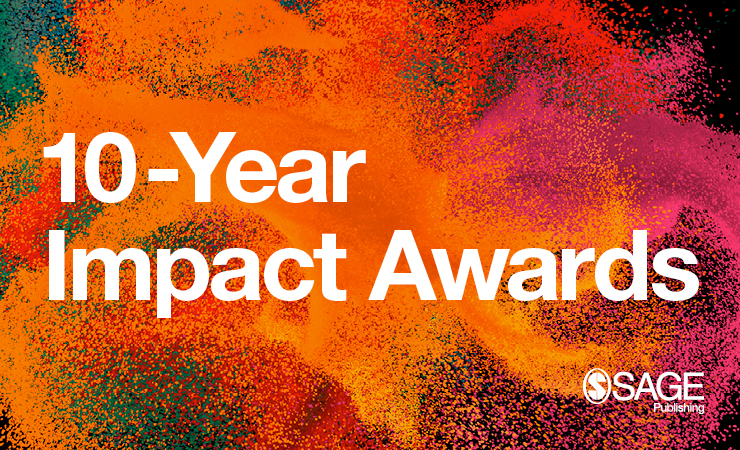The Future of Precarious Work
An Interview with a 10-Year Impact Award Winner

How do uncertain work conditions create insecure workers? The extreme loss of jobs in the U.S. as a result of the COVID-19 pandemic coupled with a flailing economy has led those who are still employed to question the stability of their jobs moving forward. In 2009, American Sociological Review published Arne L. Kalleberg‘s “Precarious Work, Insecure Workers: Employment Relations in Transition,” in which he explores the various ways unpredictable work impacts employees. Over 10 years later, sociologists actively turn to and build upon his work and the suggested structural changes needed to create more stable conditions.
A winner of our 10-Year Impact Awards—which recognize SAGE-published articles with the most citations over the span of a decade– we reached out to Kalleberg to learn more about his research.
In your estimation, what in your research – and obviously the 2009 published paper – is it that has inspired others or that they have glommed onto?
The topics of precarious work and job insecurity have become even more relevant during the past decade. I wrote the paper during the Great Recession of 2008/9 when high levels of unemployment were creating a great deal of uncertainty and insecurity. This economic crisis exacerbated the precarity produced by the expansion of non-standard work arrangements (e.g., temporary work, independent contracting) that began two decades earlier. During the past decade, employers have continued to shift risks of work to their employees (for example, through defined contribution as opposed to defined benefit pension plans, health insurance plans with higher co-pays, or unpredictable schedules). The spread of independent contracting and the fissuring of organizations (through the use of subcontracting and outsourcing) has continued to make work even more insecure and uncertain. The notion of precarious work aptly describes the zeitgeist of work in the 21st century. With the onset of the COVID-19 pandemic, the precarity of work and the insecurity of workers has become even more exposed.

What, if anything, would you have done differently in the paper (or underlying research) if you were to go back in time and do it again?
This article was a revision of my presidential address to the American Sociological Association in 2008. I synthesized what was known about changes in work in the United States and other industrial countries at the time and my framework for studying precarious work built on over three decades of my research and teaching. My thinking about the causes, nature and consequences of precarious work have evolved since then (for example, see the recent books listed in my response to Q4) but these extensions built on the basic ideas that were presented in the 2009 paper.
What direct feedback – as opposed to citations – have you received in the decade since your paper appeared?
The explosion of research and writing on precarious work testifies to the growing importance of the topic of precarious work. I have been invited to give talks and media interviews on this topic in many venues, both in the United States and around the world. My discussions with colleagues and students about these issues have always been lively and have reinforced my belief that precarious work is a real problem that affects many people, with serious consequences for them, their families, and society.
How have others built on what you published? (And how have you yourself built on it?)
There has been a great deal of work done on precarious work and its consequences since 2009. Research has examined precarious work in specific occupations and within particular organizations in different countries, both in the Global North and South. The concept of precarious work has been developed theoretically and its measurement has improved. Studies have also examined the consequences of precarious work for a variety of outcomes, including family dynamics, mental and physical health, income inequality, careers and mobility, organizational behavior, and public policy.
I have built on and extended the research presented in the 2009 paper in several directions, which are reflected in four books that I wrote or co-edited in the past decade:
- Kalleberg, Arne L. 2011. Good Jobs, Bad Jobs: The Rise of Polarized and Precarious Employment Systems in the United States, 1970s-2000s. New York: Russell Sage Foundation, American Sociological Association Rose Series in Sociology.
- Hsiao, Hsin-Huang Michael, Arne L. Kalleberg, and Kevin Hewison (editors). 2015. Policy Responses to Precarious Work in Asia. Taipei, Taiwan: Academia Sinica.
- Kalleberg, Arne L. and Steven P. Vallas (editors). 2018. Precarious Work: Causes, Characteristics, and Consequences. Volume 31 of Research in the Sociology of Work. Bingley, United Kingdom: Emerald. Paperback version issued in November 2019.
- Kalleberg, Arne L. 2018. Precarious Lives: Job Insecurity and Well-Being in Rich Democracies. Cambridge, UK: Polity Press.
Could you name a paper (or other scholarly work) that has had the most, or at least a large, impact on you and your work?
This is difficult to answer because my work owes a great deal to many social scientists who have studied the nature and changes of work. The extensive reference list in the 2009 paper demonstrates my debts to these researchers. Scholars who have been particularly important to my thinking about these issues include Ivar Berg (with whom I have had a long-standing collaboration); Peter Cappelli; Duncan Gallie; Jacob Hacker; Paul Osterman; Michael Piore (especially his presidential address to SASE 2008); Guy Standing; and Steve Vallas.






















































































